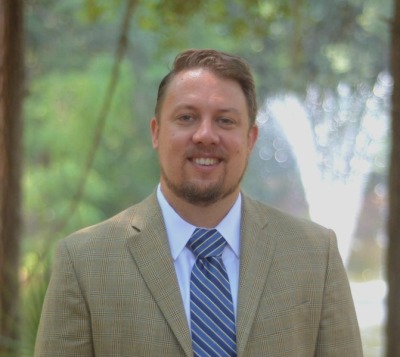The Intersection of Theology and Technological Futurism

There are many people in the world today who like to contend that science and technology are distinctly at odds with religious practice and theological inquiry. The standard argument is that science and technology deal strictly with repeatable, tested facts whereas issues of faith and belief are speculative and/or unprovable. As it happens though - that particular perspective isn't the whole truth. In fact, science and technology are increasingly growing in commonality with theology, both envisioned and practiced, as they have begun to share the common practice of postulating the future for both humanity and known universe.
For instance, theology and religious practice intersect with science and technology in that they both conceptualize intellectual questions in their respective fields of inquiry. While science does advocate belief in what it can consistently and repetitiously test, the scientific method also includes a conceptual phase that precedes the development of a hypothesis. This imagining phase is usually based on prior observations that cannot adequately be explained by available scientific theories.
Although theological speculation cannot be tested in the same ways that scientific testing demands, it is often the case that persons who are religious are imagining theological possibilities in the same way. Such theological imagining is, like the scientific method's imagining phase, also based on prior observations and experiences that cannot be satisfactorily clarified by available scientific theories.
While such shared commonality may not seem significant at first, in recent years, it has proved important. That is because the visible exponential emergence of technology has developed a modern offshoot of the scientific community, which deals specifically with technological futurism. Technological futurism is the systematic development and exploration of predictions and possibilities about the future of technology and how such technologies will develop from the present. Many times these predictions postulate possible, probable and/or preferable technological developments and how they will affect humanity or a given aspect of the universe.
The recent rapid development of technological futurism is of note to theologians because it shares a common goal with theological inquiry. It seeks to understand how humanity and the universe will be transformed in the future. And this common inquisitiveness regarding ultimate questions has spurred on theologically driven technological questions that force persons to question both their scientific and religious practice.
Questions like: Will artificial intelligence ultimately be good for humanity? How will virtual reality eventually shape our understanding of what it means to exist as persons? How will pursued genetic modification end up affecting the world that we live in? Are their limits to how far a person can be technologically enhanced and still remain a human being? How can current technology be used for the betterment of all of humanity and the world?
Questions like these are shaping scientific development and religious practice in ways that are causing many to recognize mystery as a unifying catalyst for cooperative imagination. Insofar as the future represents infinite possibility it also represents hope. And it is in that hope that theology and technological futurism are increasingly merging together in purpose.
Even more important though is the fact that advocates of technological futurism, whether they recognize it or not, are in many ways, being deeply shaped by the Christian premise that humans have a responsibility to further the betterment of humanity and the earth. That personal formation, on a mass scale, is thus creating a conjoined excitement in our collective ability as human beings to be good stewards of our destinies.
This is Good News – because it means that the world and humanity are, in many ways, becoming better than they have ever been in the past. And insofar as we can see this happening – most Christians will recognize that they are witnessing the participatory reality of Jesus redemptive purposes coming into fruition.



























